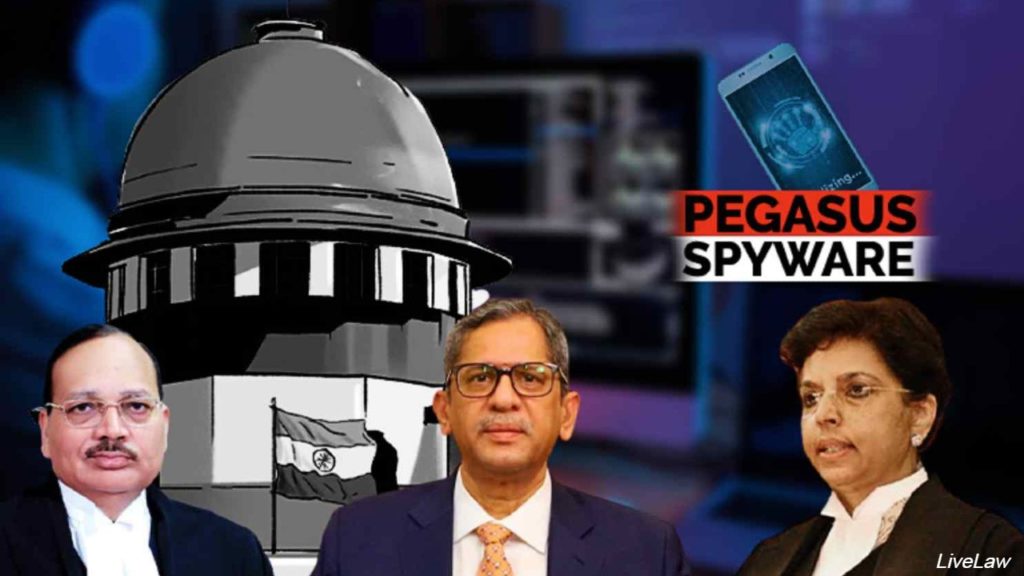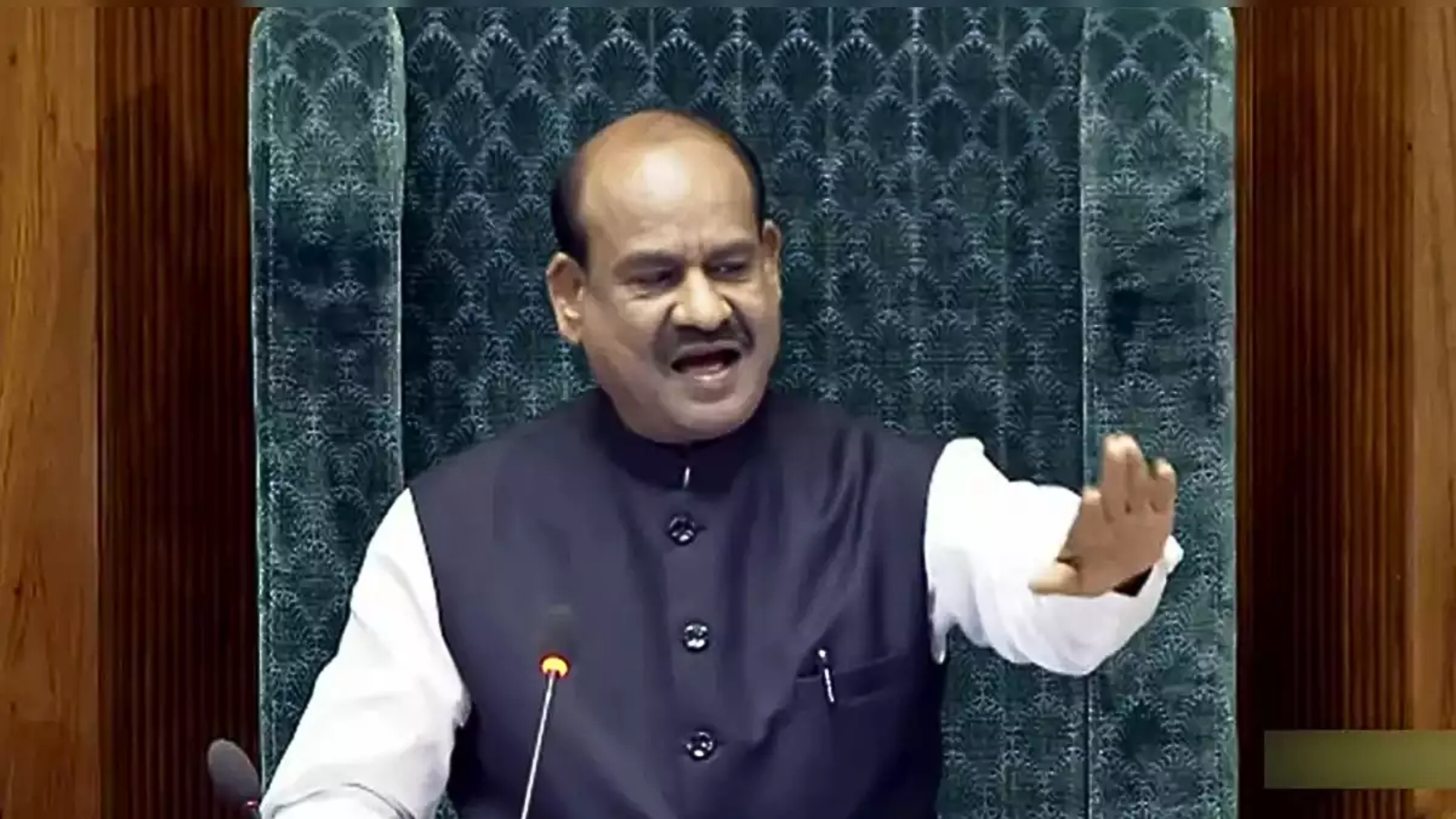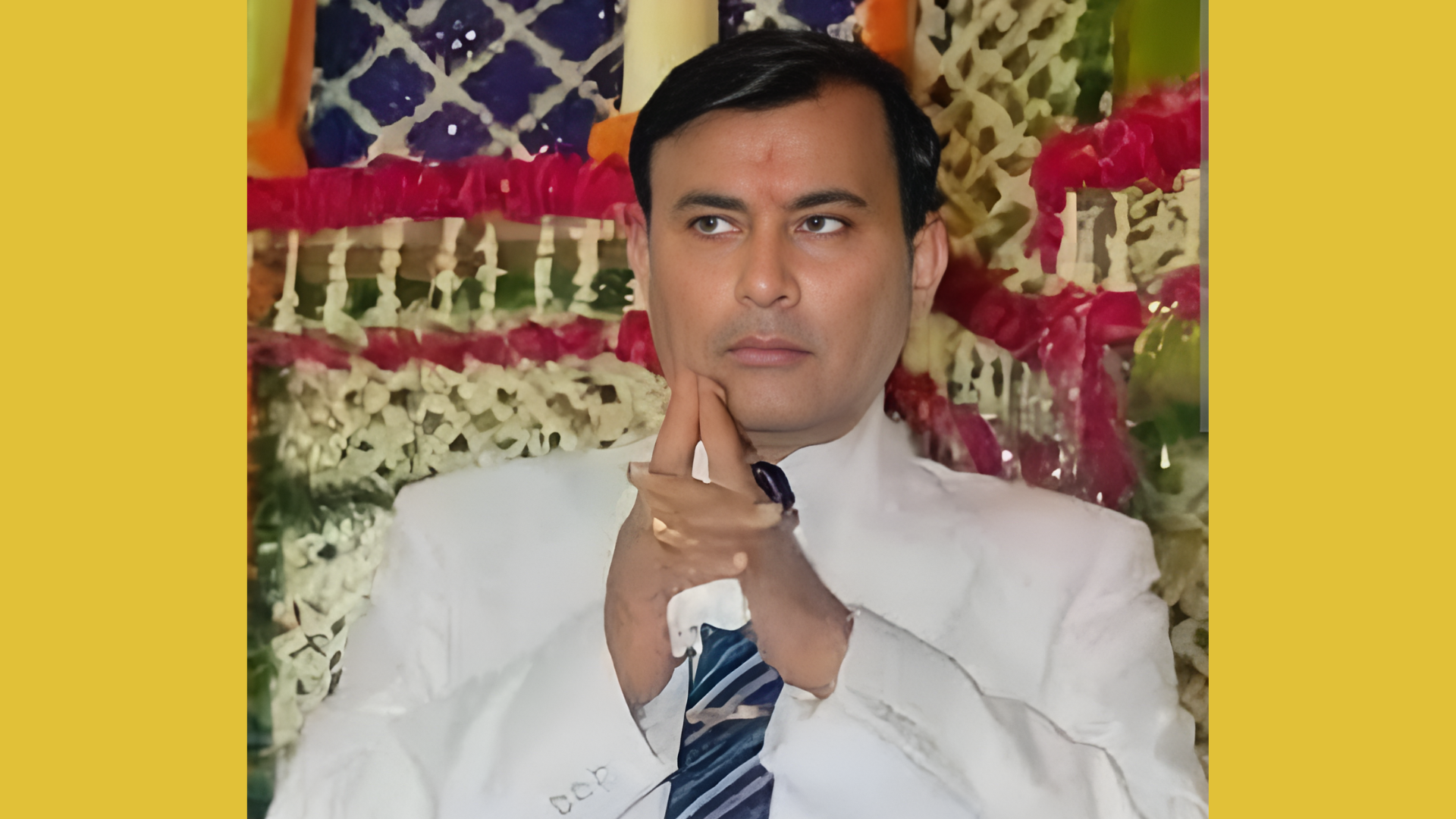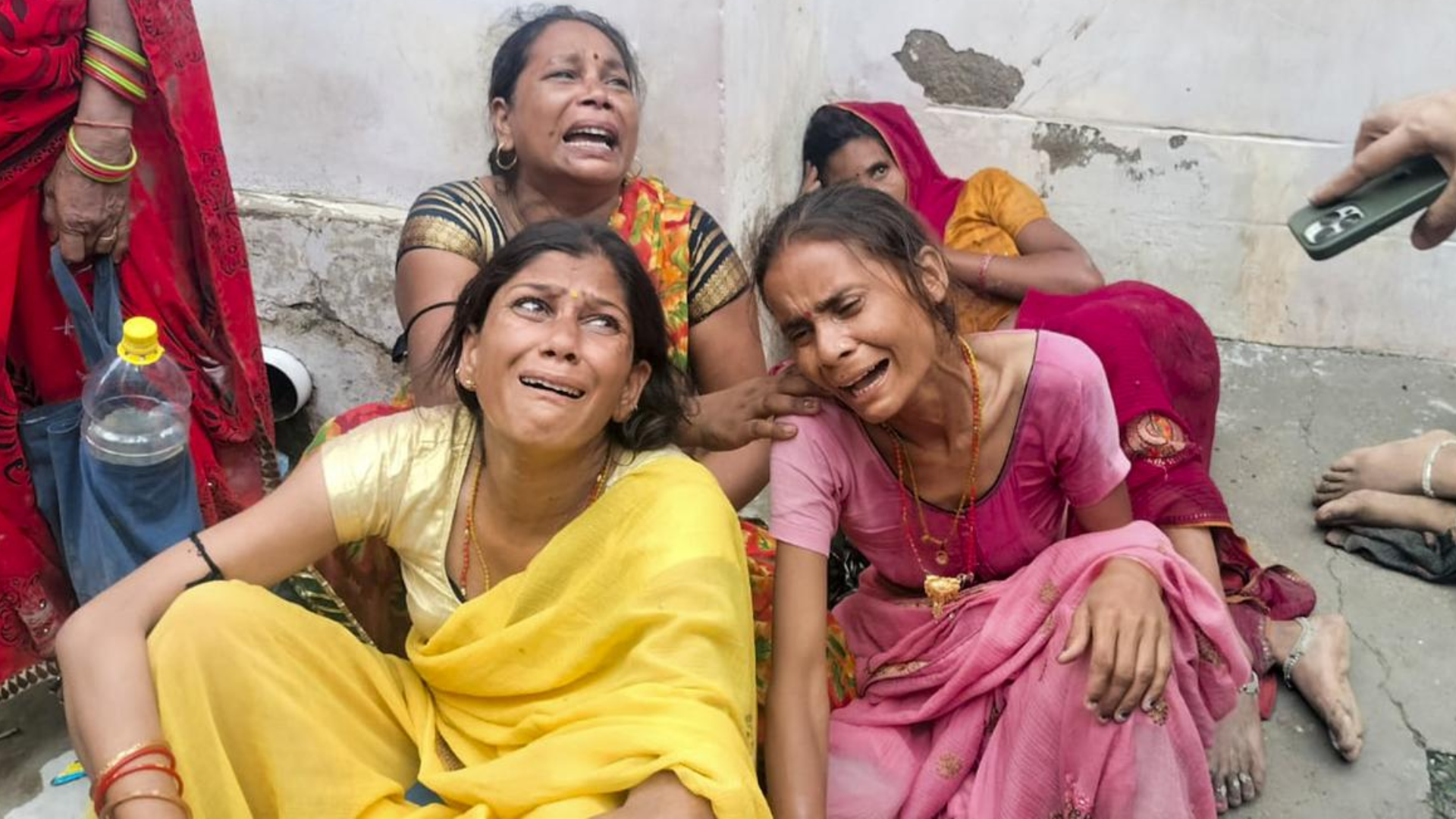SC appoints committee to probe Pegasus spying case

The Supreme Court on Wednesday, October 27 set up an independent committee with a wide mandate to investigate the Pegasus snooping case and suggest remedial measures. It said the spectre of “national security” cannot be a “free pass” every time.
The Supreme Court ruled on Wednesday that the Pegasus snooping case would be investigated by a technical committee of independent experts it set up, to be overseen by the retired apex court judge, Justice RV Raveendran. This came after the government refused to set up a probe and told the court (through Solicitor-General Tushar Mehta) during a hearing on August 16 that it would reveal all relevant details to a committee it was willing to set up.
The Chief Justice of India NV Ramana-headed bench (the other being Justices Surya Kant and Hima Kohli), while saying that “national security can’t be (a) free pass every time” to take actions unhindered by accountability, rejected the government’s earlier offer to set up a committee and instead set up the six-member committee.
The court said the state uses surveillance but the power to surveil should not affect individual rights.
Regarding the denial of the government about indulging in spying on journalists, activists and politicians (a batch of 12 petitions by affected people which sought an independent probe being the trigger for this judgment), the court said that a “vague denial from the government is not sufficient”, and that there was “no specific denial of the allegations” either.
The bench gave the committee the mandate to “enquire, investigate and determine” into
- whether the Pegasus suite of spyware was used on phones or other devices of citizens to access stored data, eavesdrop on conversations, intercept information and/or for any other purposes
- the details of the victims affected
- the actions taken by the Union government after reports were published in 2019 about the hacking of WhatsApp accounts of Indian citizens using Pegasus
- whether any Pegasus suite of spyware was acquired by the Union government or any state governments or any Central or state agency for use against citizens
- if deployed, under what law, rule, guideline, protocol or lawful procedure was such deployment made
- whether any domestic entity/person used the spyware on citizens and if so, whether such use authorised, and
- any other matter or aspect which may be connected, ancillary or incidental to the above terms of reference, which the committee may deem fit and proper to investigate.
The committee will also make recommendations regarding
- enacting laws and/or amending existing laws and procedures on surveillance and the right to privacy
- enhancing and improving the cyber-security of the nation and its assets
- ensuring prevention of invasion of citizens’ right to privacy through such spyware
- the establishment of a mechanism for citizens to raise grievances on suspicion of illegal surveillance of their devices
- the setting up of a well-equipped independent premier agency to investigate cyber-security vulnerabilities and cyber-attacks
- any ad hoc arrangement that may be made by the Supreme Court as an interim measure for the protection of citizens’ rights, pending the passing of laws/regulations by the Parliament, and
- any other ancillary matter that the committee may deem fit and proper
The bench, however, said that the right to privacy (which the victims say has been impinged upon through the spying), although inalienable, is not absolute; certain limitations exist but, then again, any restriction imposed must necessarily pass constitutional scrutiny.
Retired Supreme Court judge, Justice RV Raveendran would oversee the functioning of the three-member technical committee, comprising of Naveen Kumar Chaudhary (professor of cyber-security and digital forensics and Dean, National Forensic Sciences University, Gandhinagar, Gujarat), P Prabaharan (professor at the School of Engineering in Amrita Vishwa Vidyapeetham, Amritapuri, Kerala) and Ashwin Anil Gumaste (Institute Chair Associate Professor of Computer Science and Engineering at IIT Bombay).
Justice Raveendran would be assisted by Alok Joshi (former IPS officer of the 1976 batch) and Sundeep Oberoi (Chairman, Sub-Committee in International Organisation of Standardisation/International Electro-Technical Commission/Joint Technical Committee).
The judges said it was an “uphill task” to choose independent members, and it was done based on data gathered “personally”.







